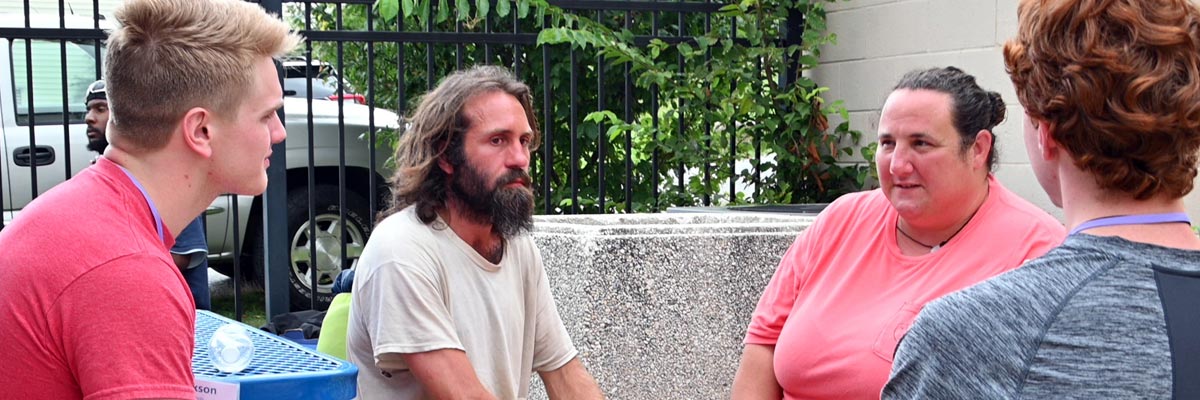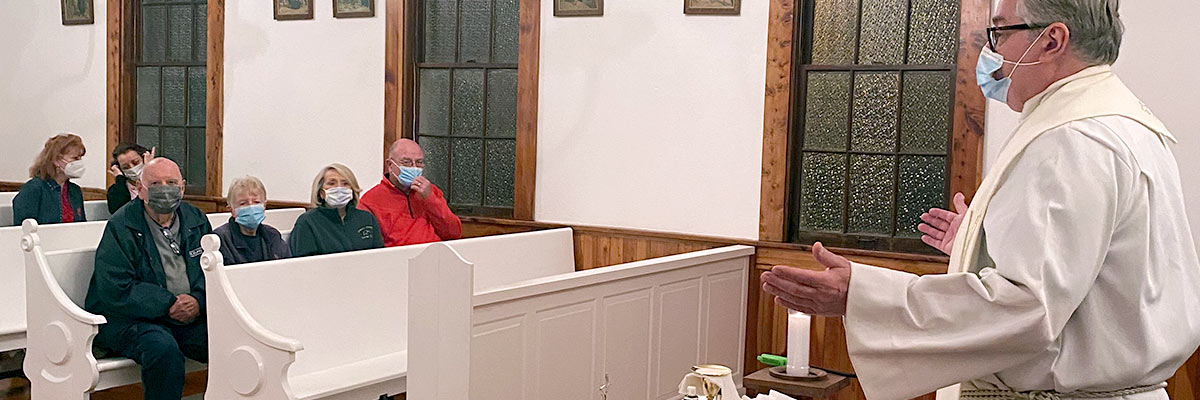Official Website of the
Catholic Diocese of Little Rock
Wednesday of the Second Week of Advent, Year C, 2024
Published: December 11, 2024
Bishop Anthony B. Taylor preached the following homily during a Mass and consecration of the new altar at St. Louis Church in Camden on Wednesday, Dec. 11, 2024.

Bishop Taylor
One of the hardest things I had to learn as a child was to tie my own shoes. My parents got a big wooden shoe for me to practice on, but then I had trouble applying that knowledge to my own foot because everything was backwards. Up to then I had depended on my parents to tie my shoes because it was important that they be bound to my feet.
One of the hardest tasks of adulthood is to decide what to bind ourselves to in life. Who to bind ourselves to in marriage. What field of study to bind yourself to in college. The word “bind” may give us the impression that these things leave us less free than before. But quite the opposite is true.
When we were children, our parents not only tied our shoes, they also sought to bind us to particular values, a particular faith, particular relationships — for which I, for one, am eternally grateful. But there does come a time when we have to learn to tie our own shoes, to make those values our own, to take personal ownership for our relationship with the Lord.
No one is less free than the person who refuses to be bound to things that give meaning and purpose to life. The unemployed and ignorant are not free — true freedom comes with commitment — living for something bigger than ourselves.
The word “religion” comes from a word meaning “to bind.” This is the same root found in our word “ligament.” Ligaments bind bone and muscle, giving us the freedom to walk or run; no one is less mobile than the person whose ligaments have been cut.
Religion binds us to God and a system of beliefs about God — no one has fewer resources for life than the person with no religion, whose connection to the source of life has been cut. And the Eucharist — which we will be celebrating on this new altar that we are consecrating today binds us — unites us — to Jesus in the closest way possible.
The Catechism of the Catholic Church is quite clear (1324). It states that the Eucharist celebrated on this altar is “the source and summit of the Christian life. The other sacraments, and indeed all ecclesiastical ministries and works of the apostolate, are bound up with the Eucharist and are oriented toward it.”
In the passage that precedes today’s Gospel Jesus tells us that he is so intimately bound to the Father that to know either is to know both, and then in today’s Gospel he goes on to say that he has come to provide us the means whereby we can united intimately to the Father as well.
Jesus describes this using the image of a yoke. A yoke is a wooden frame by which two oxen are joined to enable them to work together. There are three things about this yoke: 1.) It exists — we can be bound, there is someone on the other side to whom we can be bound. Atheists don’t think there is anyone over there, 2.) It is Jesus’ yoke — this yoke is both the person of Jesus and his teaching, and 3.) It is not burdensome — unlike the burdensome law of Moses which only the religious elite were really able to observe. It is light; it brings rest rather than exhaustion. One reason is that Jesus’ yoke is made for two and Jesus is there on the other side pulling most of the load.
Jesus' message in today's Gospel is for all of us. When we were children, our parents not only tied our shoes, they also sought to bind us to particular values, a particular faith, particular relationships — for which I, for one, am eternally grateful. But there does come a time when we have to learn to tie our own shoes, to make those values our own, to take personal ownership for our relationship with the Lord.
As they say, God has no grandchildren — only children. No one inherits faith. It comes to us as a gift, in many cases offered to us by God through our parents and others, but each of us must then choose to receive that gift ... and no one else can do that for you. Not even your spouse.
At a certain point each of us must slip our parents out of the other side of the yoke of religion, and freely and personally invite Jesus into our lives, making him and his teachings the yoke that binds us to God; putting him there on the other side of the yoke to help us bear the load.









